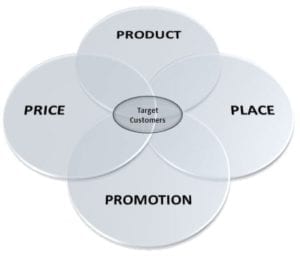By Dr Frances Wright, lecturer for the Institute of Logistics and Supply Chain Management (ILSCM)
Success and the creation of optimal efficiency in production and customer service are the ultimate goals in business. The original four Ps of marketing – promotion, product, price and place – are about achieving these goals while informing the market that the product is available. If the product or service provides a solution to a need in the market, the demand for the product will be created and it will be up to production, supply chain and logistics to provide the right product, at the right price and at the right place in order to fulfil customer requirements.
Production, supply chain and logistics therefore form an integral part of the full marketing spectrum. While sound supply chain management will contribute towards the quality of the products or services, the reduction of costs and the reduction of risk, it is also a way of achieving vertical integration benefits and fulfilling on all requirements without having to own or produce all of the necessary resources. Therefore supply chain management contributes towards the integration of business processes among industry partners, eventually to the benefit of the end user. The various elements of supply chain management (including suppliers, subassembly manufacturers, distributors, wholesalers, retailers and, ultimately, the end customer) are all linked together in order to enhance efficiencies and competitiveness and enhance the reputation of the business; in other words, increasing marketability.
In general, businesses (especially smaller companies) do not focus on supply chain management as part of the marketing activity and therefore do not alleviate weaknesses through alliances. The entire supply chain will only be as effective as the weakest area point in the chain. The trend towards customisation has made supply chain management complex, especially with regard to issues such as on-time delivery, inventory management, the quality of raw materials, capacity, subassemblies and distribution. The ability to manage a network of interdependent relationships and strategic collaboration is a crucial skill, especially as increased complexity raises the level of uncertainty and risks throughout the supply chain.
It is all about walking the talk, telling the market about the advantages of the product while being able to fulfil on all marketing promises through alliances. With the information explosion and knowledge being at anyone’s fingertips, customers no longer rely on expert opinion alone and choices are expanding rapidly. From being isolated and relying on expert advice from suppliers, customers are now informed and active. Benchmarking and reverse engineering are techniques that have brought supply from various suppliers closer, making it more and more difficult to generate or identify a true unique differentiator. A variety of suppliers in today’s marketing will provide similar products in terms of functionality, quality and price; therefore the pressure is on every business to become even more competitive through efficiency, innovation and productivity. That being said, it is even more important to outsell the competition, which is only possible when the correct messages are taken to market and then ethically fulfilled.
In order to achieve business success it is necessary to achieve customer satisfaction and, therefore, a continuous improvement programme is required. The market has transformed from creating brand equity to focussing on customer lifetime value. Customer’s needs and requirements have grown more complex and expectations of customers have increased manifold. The situation demands an increased awareness of customer requirements, regardless of whether the businesses are operating globally or locally, and being able to provide a standardised quality product. Variance in the quality of supply will negate every marketing message that has been disseminated and ensure that no return on investment is received on marketing spend.
Customer satisfaction is considered an essential measure of business success. Expectations of consumers about quality, innovation, price, service levels and on-time delivery have become a necessity for success and no longer simply ‘a nice thing to have’. It is necessary to focus on the integration of marketing with supply chain management and production. Marketing is, or should be, closer to the customer than the rest of the organisation. Data can be collated from the marketing department to production and logistics and enhance the customer value proposition. Not only will marketing be aware of customer requirements, being able to lead production to customise accordingly, it will also provide data to increase forecasting efficiency as it can effectively predict demand.
When marketing and the supply chain are not integrated, it will result in over or under performance. If marketing oversells and stock shortages arise, it will damage the reputation of the organisation, negating positive marketing messages that have been disseminated to the target market. If marketing undersells, stock will pile up resulting in storage costs and damaged goods or unmet expectations. Without the integration of marketing, production and supply chain, it is not possible for a business to achieve its full potential. Products will not be delivered according to customer needs, deliveries will not be made at the right time and place and sales will not be able to perform at optimal levels. All in all, departmental goals and objectives have to be aligned with business objectives, all working together as one unified engine to achieve the vision and the mission of the organisation through delivering the right product at the right place and price through efficient promotion, enticing the client to buy.







